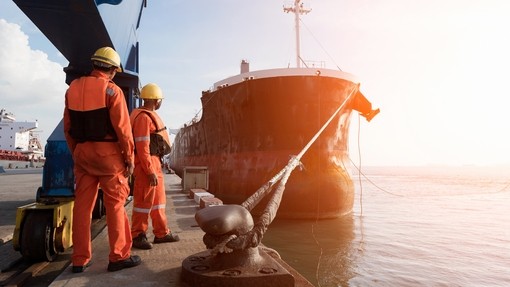Aspen Underwriting Limited and Others -v- Kairos Shipping Limited and Others [2017] EWHC 1904 (Comm)

Details
In this case the Commercial Court had to determine whether it had jurisdiction to hear a claim brought by underwriters for recovery of insurance proceeds against a third party based in the Netherlands.
Factual background
The ATLANTIK CONFIDENCE (the vessel) sank in the Gulf of Aden on 3 April 2013. Pursuant to a settlement agreement (the settlement agreement) entered with the vessel’s owners and managers on 6 August 2013, the hull underwriters paid out a total of $22 million under the hull and machinery policy (the policy). It was subsequently held by the court that the vessel was deliberately scuttled at the request of the beneficial owner (see case summary from our December issue [2016] 2 Lloyd’s Reports 525).
The hull underwriters consequently sought recovery of the insurance proceeds which were paid to the owners, the managers and the vessel’s mortgagees, the bank.
Legal issues
The bank maintained that under the Brussels Regulation the court had no jurisdiction to hear and determine the claim against the bank. The hull underwriters argued that the court had jurisdiction for three reasons: first, under the exclusive jurisdiction clause in the settlement agreement; second, on the basis of the exclusive jurisdiction clause in the policy; and finally, under the provisions of the Brussels Regulation.
The settlement agreement
Before the signing of the settlement agreement, a letter dated 5 April 2013 had been duly executed by the bank and was addressed to the hull underwriters, authorising them to pay to the broker the insurance proceeds as an ‘absolute discharge’ under the policy, provided that the proceeds were subsequently paid to the bank or the owners.
The hull underwriters sought to argue that the letter was authority given by the bank to the owners to settle the claim under the policy on the bank’s behalf and that the owners had therefore entered into the settlement agreement not only on their own behalf but also as agents for the bank.
Teare J disagreed. The terms of the letter and its context were consistent with the bank’s understanding that the owners would deal with the hull underwriters on their own behalf but being concerned to ensure that the sums received would be used to discharge the owners’ debts to the bank.
As to the settlement agreement, the court held that the bank was not bound by it. The settlement agreement purported to define the parties to it, namely the hull underwriters and the owners and the managers. Such clear definition was a cogent indication that they and no-one else were the parties to the settlement agreement. Further, the recitals expressly noted the role of the bank. Had it been intended that the bank was also party to the settlement agreement, the parties would have made that clear.
The policy
The hull underwriters’ second ground was that the policy included an exclusive jurisdiction clause and that the bank was bound by this on the basis that it had sought to enforce the terms of the policy for its own benefit (i.e. by asserting its right to payment under the policy when issuing the letter dated 5 April 2013). Further, it was said that the bank had signified its consent to the policy.
Teare J disagreed. The bank would only be bound by the jurisdiction clause in circumstances where it chose to sue the hull underwriters under the policy and it never did so. Further, no evidence put forward by the hull underwriters contained an express recognition by the bank of the exclusive jurisdiction clause in the policy.
The Brussels Regulation
The final basis for asserting the jurisdiction of the court was that, under Article 7(2) of the Brussels Regulation, a person domiciled in a member state might be sued in another member state ‘in matters relating to tort, delict or quasi-delict, in the courts for the place where the harmful event occurred or may occur.’ However, the hull underwriters had to establish also that their claim was not a ‘matter relating to insurance’. If it were, then pursuant to Article 14 an insurer might only bring proceedings in the courts of the member state in which the defendant was domiciled, ‘irrespective of whether he is the policy holder, the insured or the beneficiary’.
The starting point was the nature of the hull underwriters’ claim. In short, it was that owners and managers had represented that the vessel was lost by a peril insured against under the policy, the bank had made or adopted the same representation in their letter dated 5 April 2013 and the hull underwriters had placed reliance on these representations in entering into the settlement agreement. The vessel was not lost by reason of a peril insured against (it was scuttled). The alleged misrepresentations were said to have been made deliberately or in breach of a duty of care etc. and the bank was said to have adopted the representations and be vicariously liable for the misrepresentations.
With regard to remedies, the hull underwriters sought rescission of the settlement agreement, restitution of the sums paid and/or damages.
As to whether the matter related to insurance, the court held that the nature of the claim made by the hull underwriters against the bank was so closely connected with the question of the hull underwriters’ liability to indemnify in respect of the loss of the vessel pursuant to the policy that it could fairly and sensibly be said that the subject matter of the claim related to insurance and so it was governed by Article 14.
However, recital number 18 of the Regulation, provided that in relation to insurance the weaker party should be protected by rules of jurisdiction more favourable to their interest than the general rules. In the present case, it was not possible to describe either party to the policy or the bank as the ‘weaker party’ and the court concluded that the bank could not take the benefit of Article 14.
It was therefore necessary to consider whether the claims of the hull underwriters were in tort, delict or quasi-delict and if so whether the harmful event occurred in England with the result that the Bank could be sued in England. As to where the harmful event had occurred, it was submitted that it had occurred in England because either the damage had occurred in England (where the hull underwriters’ lawyers had signed the settlement agreement and/or the sums had been paid to the brokers’ bank account in London) or the event giving rise to the damage had occurred in London (being the place where the misrepresentations had been made and/or the place where the hull underwriters had been induced).
The court held that the hull underwriters had the better argument that their claim for damages caused by misrepresentation was a matter relating to tort and that the harmful event occurred within the jurisdiction with the result that the court had jurisdiction over that claim. However, the court did not have jurisdiction over the claim in restitution because that was not a matter relating to tort.
Case comment
This case highlights the importance of ensuring that all applicable parties are named as such in any settlement agreement and also that they sign the agreement. It is also imperative that the parties obtain express confirmation where any relationship of agency is assumed to exist. The case also acts as a useful reminder as to how the English Court will construe the meaning of ‘matters relating to insurance’.
This article originally appeared in the September 2017 edition of shipping case digest. Other articles include:
MT Højgaard A/S -v- E.ON Climate & Renewables UK Robin Rigg East Limited [2017] UKSC 59
Dainford Navigation Inc -v- PDVSA Petroleo S.A “MOSCOW STARS” [2017] EWHC 2150 (Comm)
Sana Hassib Sabbagh -v- Wael Said Khoury & Others [2017] EWCA Civ 1120






